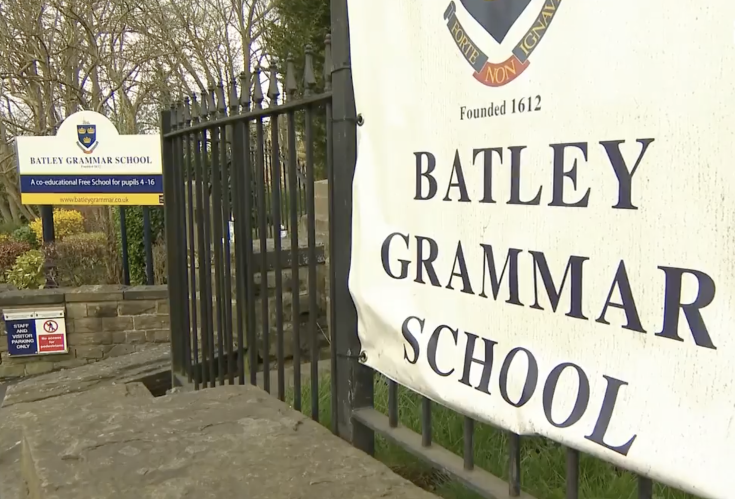Prevent review calls for greater focus on ‘blasphemy’ accusations
Posted: Thu, 16th Feb 2023
A review of the UK's Prevent counter-terrorism programme has called for increased efforts to tackle "so-called blasphemy narratives".
The independent review, led by William Shawcross, highlighted the "violence associated with accusations of blasphemy and apostasy" as an area of particular importance in countering extremism.
An improved understanding of blasphemy and its role in the wider threat posed by Islamism was amongst the review's recommendations, all of which have been accepted by the government.
The review said it was "vital" that the ideological threat of blasphemy is "proactively" addressed, due to the "serious challenge it poses to our national culture of free speech" and to public safety.
The events in Batley, Yorkshire, where a teacher had to receive police protection after he showed his class a cartoon of Mohammed during a lesson on free speech, were raised by Shawcross as being of particular concern.
Shawcross said it was "thoroughly shameful" that a teacher in a "liberal democratic society" was subject to "threats and intimidation" as a result of "allegations of blasphemy".
Shawcross noted that five months before the events in Batley, French schoolteacher Samuel Paty was murdered after similar accusations.
The review criticised what was described by a "senior Prevent practitioner" as a "lack of leadership" in response to the incident, noting that the more "robust public responses" came from outside the government. The practitioner also highlighted the absence of "a co-ordinated and connected stance".
Shawcross expressed concern that "Prevent and its local partners did not play a vocal role in response to the protests", and that the events in Batley were "precisely the type of challenge" where Prevent should direct additional resources.
The NSS raised similar concerns over the handling of the Batley affair with the Department for Education.
The cases of Muslims who have been murdered in the UK by "those citing blasphemy or apostasy as justification" were also highlighted by Shawcross.
In March 2016 Asad Shah, an Ahmadiyya Muslim shopkeeper, was murdered in Glasgow. In the same year an Imam in Rochdale, Jalal Uddin, was also murdered. Both murders were celebrated and justified by extremists on the grounds of 'blasphemy'.
The review said Prevent should regard those who legitimise blasphemy narratives and refuse to condemn violence linked to blasphemy as "part of the problem".
Government funding of extremism
Shawcross also said the government should not fund or engage with groups or individuals linked to instances of extremism..
The report revealed the government had directly funded organisations which promoted extremist narratives.
One Islamist organisation linked to the Iranian regime, the Islamic Human Rights Commission Trust, received £10,000 of public money as support provided to local businesses during the pandemic.
The organisation is a registered UK charity.
The review also highlighted how other registered charities are listed as "terrorist groups by key international allies". These include Interpal, which despite being a Specially Designated Global Terrorist group in the United States enjoys charitable status in the UK.
The report said Interpal had held fundraising events with the Nottingham Islam Information Point (NIIP). NIIP has been endorsed by Asad Fazil, the CEO of an organisation funded by Prevent.
The report also recommended retaining the terminology currently used to describe Islamist and Far-Right ideology. It rejected the criticisms of groups such as the National Association of Muslim Police, who have argued terms such as 'Islamist' contribute towards 'Islamophobic' sentiments.
NSS: 'Greater attention on blasphemy accusations welcome'
Jack Rivington, campaigns officer at the National Secular Society, said: "The Shawcross review's recommendation for an increased focus on tackling 'blasphemy' narratives is welcome.
"As well as the risk they pose to wider society, such narratives are also utilised by fundamentalists to threaten members of their own religious communities.
"Disappointingly, all too often political and public figures have been complicit with the deliberate tactic of equating so-called 'blasphemy' with racism or 'Islamophobia'. This undermines free speech and the freedom of religious belief.
"A robust defence of free speech at the forefront of efforts to counter extremism, though overdue, is therefore a positive step".
Freedom of Expression
Democracy cannot exist without the right to free speech. Join our campaign to protect freedom of expression from religious incursions.








